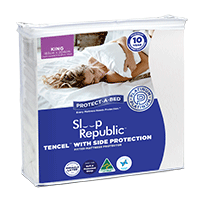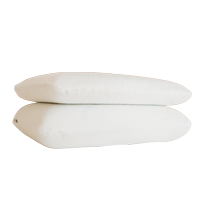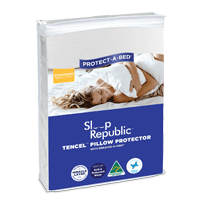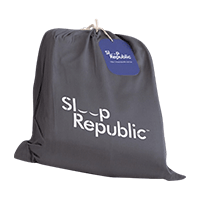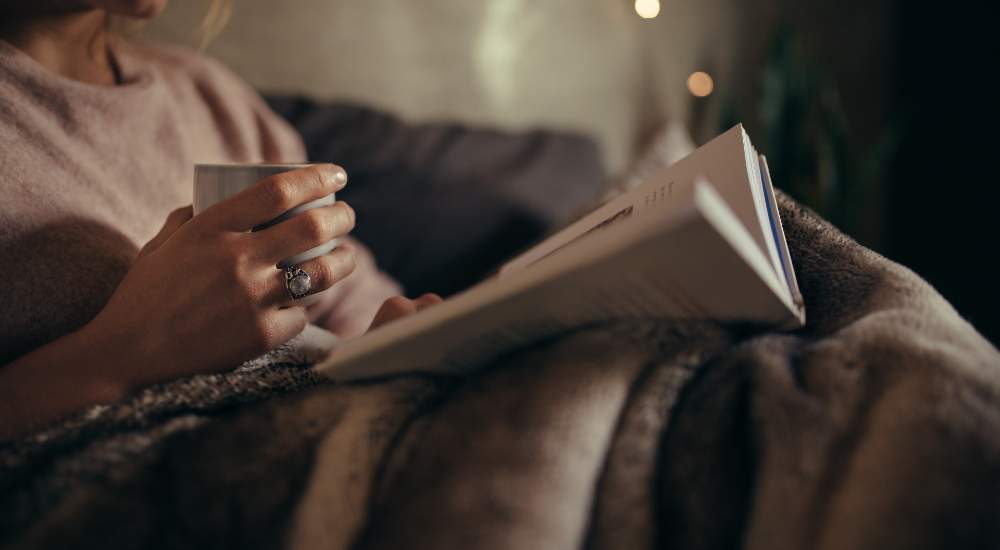Can't Sleep
What tea is good for sleep?
Picking the perfect sleep tea for you
We all know how important sleep is for your physical and mental health and wellbeing. However, sleeplessness affects a lot of people, with over 30% of Australians suffering from some degree of insomnia. The inability to fall asleep and stay asleep is a critical issue facing society today, and is only made worse by the stimulation of technology.
Fortunately, there are natural remedies that can help. Herbals teas have been used all around the world for centuries for their wide array of helpful properties. One of the most common properties possessed by teas is the ability to treat insomnia. Others are great at addressing root causes of insomnia, like stress, anxiety, abdominal discomfort, and nasal congestion.
In this article, we cover what tea is good for sleep — part of our wider discussion around how to get the best possible sleep each night. For more articles about the science of sleep, visit our blog.
Does chamomile tea help sleep?

Chamomile tea — one of the most popular and prevalent sleep teas — has been used to help sleep problems for centuries. It contains an antioxidant called apigenin, which works on specific receptors in the brain to bring on feelings of sleepiness. It is especially helpful for elderly people and women who have recently had children.
While the research around the effects of chamomile tea on sleep is inconsistent, it is widely regarded to offer a range of benefits, including:
- Mild tranquillisation
- Reduced inflammation
- Lessened anxiety
Does peppermint tea help sleep?
Peppermint tea is a popular inclusion for the nightly routine because it distinctly lacks any caffeine. It is also highly favoured in warmer climates like India, due to the fact that it contains around 20 per cent menthol, which cools the mouth.
Studies have proven that peppermint tea can help mice sleeper for longer hours, and wake up less. Some other potential benefits include:
- Reduced muscle tension
- Energy restoration
- Eased digestive issues
Does earl grey help you sleep?

Earl grey tea is another great sleep maker. Earl Grey features an ingredient called bergamot which has a raft of natural aromatherapeutic properties. It’s a key mood stabiliser and stress reliever, perfect for knocking off after a stressful day at work. It can also help with a range of insomnia-adjacent issues, like acid reflux and an upset stomach.
While there isn’t much in the way of scientific, peer-reviewed studies into the benefits of ear grey tea as a sleep aid, users often report benefits of:
- Energy boosting
- Immunity boosting
- Oral health benefits
Does fennel tea help you sleep?
Fennel teas is an antioxidant-rich liquid with both antimicrobial and antiviral properties. It forms a core part of ancient European home remedies to treat sleeplessness. It also works as a mild muscle relaxant, which can help you get ready for bed. With an aniseed-like taste, fennel is incredibly common, and can be found in basically any supermarket or health food store.
The jury is out whether fennel tea has benefits for sleep, breastfeeding, and other cycles. However, people attest that is works wonders in:
- Improving digestion
- Easing sickness
- Relieving constipation
Does green tea help you sleep?
You may be aware of the popular myth that suggests green tea actually contains more caffeine than coffee. However, green tea only contains about a third of what you’d find in your morning cup of joe. You might want to avoid caffeine all together before bed — althought there is some evidence to suggest that the antioxidant theanine may counteract the effects of the caffeine.
Green tea can potentially help with sleep duration and quality. Theanine can help by reducing stress hormones and neutron excitement in the brain. It also offers a range of other benefits, including:
- Improved mood
- Improved brain function
- Improved reaction time
Does milk help you sleep? Does warm milk help sleep?
It wouldn’t be an article about tea without mentioning one of the most popular tea additives. Milk and other dairy products contain a range of chemicals that can help with sleep. The most important of these is melatonin — the sleep hormone. Tryptophan — an amino acid that induces sleep — is also prevalent in milk.
In fact, there are even special brands of milk available taken from cows milked at night. This “night milk” does not yet have any scientific backing. However, both warm and cold milk before bed can help with:
- Relieving stress
- Reducing anxiety
- Promoting healthier sleep cycles
There are many different kinds of teas and additives that can potentially help you sleep. However, it is important to understand that tea is not a silver bullet for sleep. You should consider a holistic sleep strategy, balancing good diet, moderate exercise, stress relief, and less screen time, to name just a few. while many of the teas listed above can potentially help you get to sleep, there has been very little research completed in this field.
Looking for more ways to get to sleep? Here’s everything you need to know about getting the best possible sleep, each and every night.


